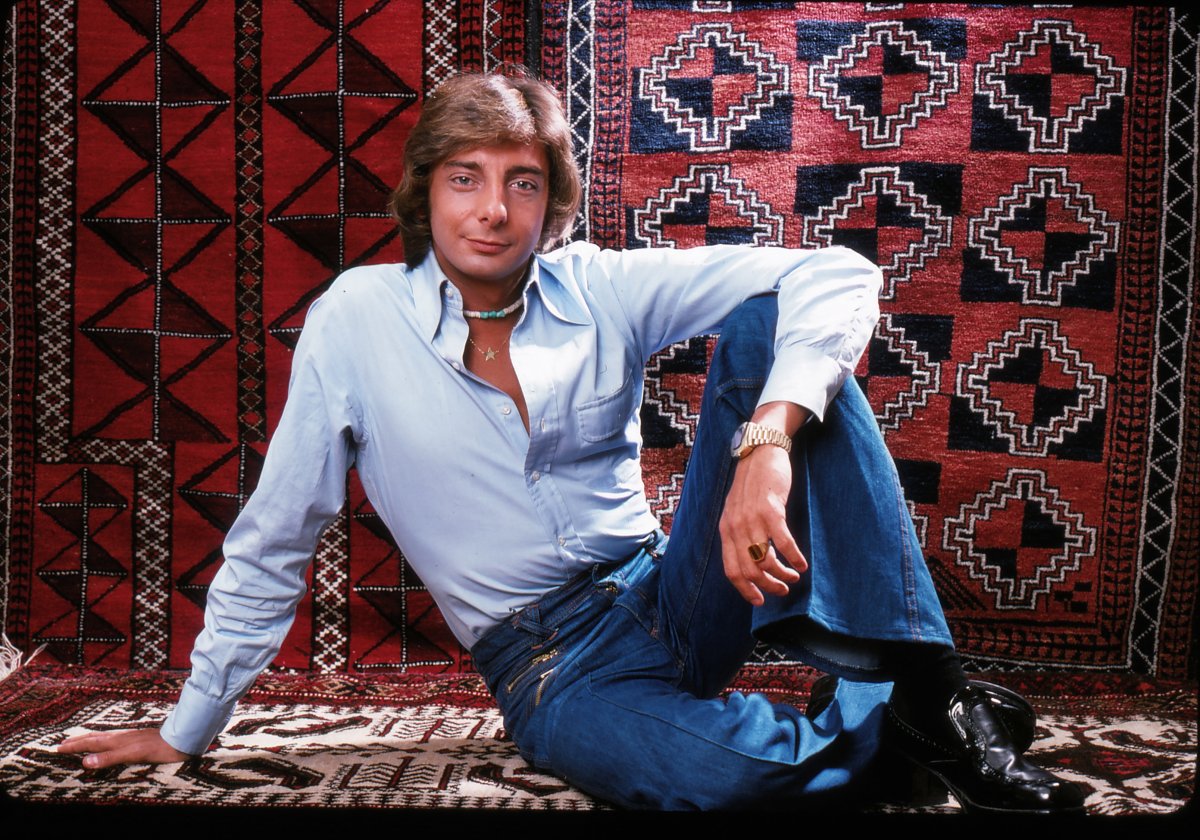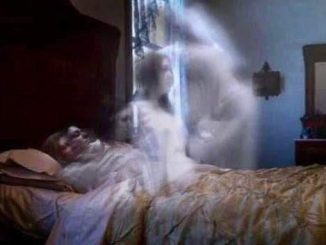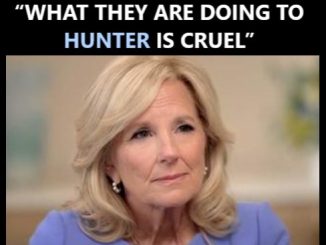
During a guest appearance on HBO’s Who’s Talking to Chris Wallace, the 80-year-old Copacabana singer said he didn’t think it was important to announce his sexuality during the earlier decades of his career.
Manilow came out in 2017, almost three years after he married his husband and manager Garry Kief in a private ceremony. The couple have been together for 45 years now, though they’ve kept much of their relationship away from the public eye.
When he came out to People magazine in 2017, Manilow — whose real name is Barry Pincus — worried he’d be “disappointing” some of his fans by revealing his sexuality. Instead, Manilow, who was 73 at the time, said the reaction from his fanbase was “beautiful.”

Despite his current feelings of nonchalance about his own coming out, Manilow said announcing his sexuality as his career was booming would have been a bad idea.
“Now being gay is no big deal,” he explained. “Back in the ’70s it would have killed a career.”
Regardless, the usually very private Manilow said he thinks “everybody knew that Garry and I were a couple all those years.”
“Really, Garry and I’ve been together for so long,” he said. “It just never dawned on me that we’re going to come out. But when we got married, it was a big deal, so we did.”
Manilow credited Kief for saving his life. He said he is thankful he had Kief to support him as his music career was taking off, despite keeping their relationship under wraps.
“As my career exploded, it was just crazy. And, you know, going back to an empty hotel room, you can get into a lot of trouble if you’re alone night after night after night,” Manilow explained. “But I met Garry right around when it was exploding. And I didn’t have to go back to those empty hotel rooms. I had somebody to cry with or to celebrate with.”
Manilow said he did not wish an isolated hotel room for any young people.
“It was pretty lonely until I met Garry. And then it was fun,” he smiled.
Kief is not Manilow’s first spouse. In 1964, Manilow married his high school sweetheart, Susan Deixler. They were married for one year.
Manilow told CNN’s Wallace he “really did love” Deixler, but added “the gay thing was pretty, pretty strong. I couldn’t deny it.”
The singer said he knew he was gay before marrying Deixler, but their marriage ended because Manilow couldn’t be the committed husband his then-wife needed. He revealed that his sexuality was not the reason his marriage failed.
“We had a very nice marriage, it was great, but I was away every night making music, as a young musician would be,” Manilow described. “It wasn’t good for me, and it wasn’t good for her.”
“I couldn’t be the proper husband,” he continued. “I was out making music every night, sowing my wild oats. I wasn’t ready to settle down.”
Brooklyn-born Manilow skyrocketed to international fame in 1974 after his release of the ever-popular pop-rock ballad Mandy. He became one of the biggest-selling musicians of all time. Prior to his success as a singer-songwriter, Manilow was behind a number of famous commercial jingles for brands like State Farm and Band-Aid — a gig that he has said helped him create catchy hooks for his own hit songs.

My Dog Grew Unusually Attached to My Wife – The Reason I Discovered Led to Our Divorce

When my wife fell ill, our loyal Labrador became her constant guardian, never leaving her side. Even after she recovered, his clinginess escalated. Concerned and puzzled, we sought answers, only to uncover a shocking revelation that shattered our marriage and changed our lives forever.
I never thought I’d be sitting on my front porch, staring at a sunset while struggling to come to terms with the breakdown of my marriage.
Life has funny way of throwing curveballs, and today, I was squarely in the path of one such pitch.
It all started a few weeks back. Alicia, my wife, had always been the nurturing type. She had a knack for making our house feel like a home, filled with warmth and love.
Then she was struck down by a nasty stomach bug. It came out of nowhere and knocked her off her feet, leaving her exhausted.
Rocky, our three-year-old Labrador, became her shadow during those days. He refused to leave her side, even when I tried to coax him away with his favorite toy.
After Alicia recovered, Rocky’s behavior didn’t revert to normal. If anything, it intensified. He’d whine and scratch at the door if Alicia so much as stepped out of his sight. It was sweet at first, until he became aggressive.
One day, Alicia took him for a walk through our neighborhood. The Thompson kids were playing out front with their terrier, a common sight.
Usually, Rocky would’ve ignored the commotion, but not this time.
The terrier spotted Rocky and ran up to him. Rocky tensed immediately, and when the terrier was about a yard away, he bared his teeth and snarled at him.
“Rocky, what the heck?” Alicia said, tightening her grip on his lead.
He continued to snarl and snap at the terrier until the kids called their dog away. This sort of behavior was completely out of character for Rocky, and it set off alarms in my head.
“James, what’s wrong with Rocky?” Alicia asked me one morning, her voice tinged with worry as Rocky pressed himself against her legs.
“I’m not sure, but he’s definitely not himself,” I replied, frowning. “Maybe we should take him to the vet. Just to be safe.”
The vet visit was supposed to put our minds at ease, but it did anything but. As we sat in the waiting room with Rocky nestled at Alicia’s feet, a woman with a poodle struck up a conversation.
“Your dog is very attached to your wife,” she noted after we’d explained his recent odd behavior. “My poodle here used to do the same thing when I was pregnant. Dogs can sense these things, you know.”
Alicia and I exchanged a look. It was a fleeting moment of shared surprise, quickly followed by a rush of excitement. Could it be possible?
That evening, we decided to take a pregnancy test.
The anticipation was palpable as we waited for the result. When the little plus sign appeared, Alicia’s eyes filled with tears of joy. I pulled her into a hug, feeling a mix of elation and disbelief.
“We’re going to have a baby, James!” she whispered, her voice trembling with happiness.
I held her tight, the gravity of the moment sinking in. But as the days passed, a gnawing suspicion began to eat at me.
We had been careful, using contraceptives diligently. And with the stress of her illness, our intimacy had taken a backseat. The timing just didn’t add up.
One night, as we lay in bed, I couldn’t keep it inside any longer.
“Alicia, there’s something I need to ask,” I began, my voice heavy with hesitation.
She turned to me, her eyes soft and curious. “What is it, James?”
“I know this sounds crazy, but I need to know for sure. Can we do a paternity test?”
The look of hurt that flashed across her face was like a dagger to my heart.
“James, how could you even suggest that?” she snapped, her voice rising. “You think I’d cheat on you?”
“It’s not about that,” I tried to explain, my tone pleading. “I just need to be certain. For my own peace of mind. To be the best husband and father I can be.”
Her anger morphed into sorrow, tears streaming down her cheeks. “How can you doubt me like this?”
“I don’t want to doubt you,” I said, feeling my own eyes burn. “But I need to be sure. Please, Alicia.”
The silence that followed was deafening. She finally nodded, her shoulders slumping in defeat. “Fine. If that’s what you need.”
As the days went by, waiting for the test results was torture. Each moment stretched on endlessly, filled with an oppressive weight that seemed to crush my spirit a little more each day.
When the envelope finally arrived, I could barely bring myself to open it.
Alicia sat across from me, her face a mask of anxiety and hope. Rocky lay at my feet, his head resting on his paws, sensing the tension in the room.
“Are you ready?” I asked, my voice barely a whisper.
Alicia nodded, tears already glistening in her eyes. With trembling hands, I tore open the envelope and pulled out the results.
The words blurred before my eyes, but one line stood out in stark clarity: “Probability of paternity: 0%.”
For a moment, the world stopped. I couldn’t breathe, couldn’t think. Alicia’s gasp brought me back to reality. She reached for the paper, her hands shaking as she read the result.
“No… this can’t be right,” she sobbed. “It has to be a mistake.”
“We’ll do it again,” I said, my voice hollow. “We have to be sure.”
We repeated the test twice more, each time clinging to a sliver of hope that the first result had been wrong. But each time, the answer was the same.
Alicia wasn’t carrying my child. I finally confronted her about it, and she confessed that she’d had an affair. The news hit me like a sledgehammer, shattering the fragile remnants of my trust.
“James, please,” Alicia pleaded, tears streaming down her face. “It was a one-time mistake. I swear it meant nothing. Please, don’t leave me.”
I looked at her, the woman I had loved and trusted with my whole heart, and felt a deep, aching sorrow.
“Alicia, I can’t do this,” I said, my voice breaking. “I can’t stay with someone who broke my trust like this.”
“Please, James,” she begged, her voice choked with sobs. “We can get through this. I love you.”
“I love you too,” I admitted, feeling the sting of those words. “But love isn’t enough without trust. I can’t pretend this didn’t happen.”
The decision to file for divorce was the hardest thing I’d ever done. We agreed to split everything fairly, but when it came to Rocky, Alicia broke down.
“I can’t take care of him alone,” she admitted, her voice barely above a whisper. “I’m so sorry, James. I just can’t do it.”
Rocky looked up at me, his soulful eyes filled with understanding. He had been my rock through this whole ordeal, sensing the truth before any of us. I couldn’t imagine leaving him behind.
“It’s okay,” I said. “I’ll take Rocky with me.”
Packing up my things and leaving the home we had built together felt like a nightmare.
But I also felt a strange sense of relief. It was time to start over, to rebuild my life from the ground up.
One afternoon, Rocky and I headed to our favorite park. I threw the ball, and Rocky bounded after it with his usual enthusiasm. But instead of bringing it back to me, he trotted over to a woman sitting on the grass with the ball clutched in his mouth.
“Well, hello there,” the woman said, laughing as Rocky dropped the ball at her feet. She had bright, friendly eyes and an infectious smile.
“Sorry about that,” I said, walking over. “He usually returns the ball to me.”
“No problem at all,” she replied, giving Rocky a pat on the head. “He’s adorable. I’m Courtney, by the way.”
“James,” I introduced myself, feeling an unexpected warmth in her presence. “This is Rocky. He seems to like you.”
“Well, I like him too,” Courtney said, her smile widening. “You have a great dog.”
We chatted for a while, and I found myself enjoying the conversation more than I had anticipated.
Courtney had a lightness about her, a genuine kindness that made me feel at ease. As the evening drew to a close, we exchanged numbers, promising to meet up again.
That is how I ended up here on the porch, reflecting on how far I’ve come.
Alicia’s betrayal left deep scars, but I was beginning to see a path forward.
With Rocky by my side and new possibilities on the horizon, I felt a glimmer of hope. Maybe, just maybe, the future held something good after all.



Leave a Reply